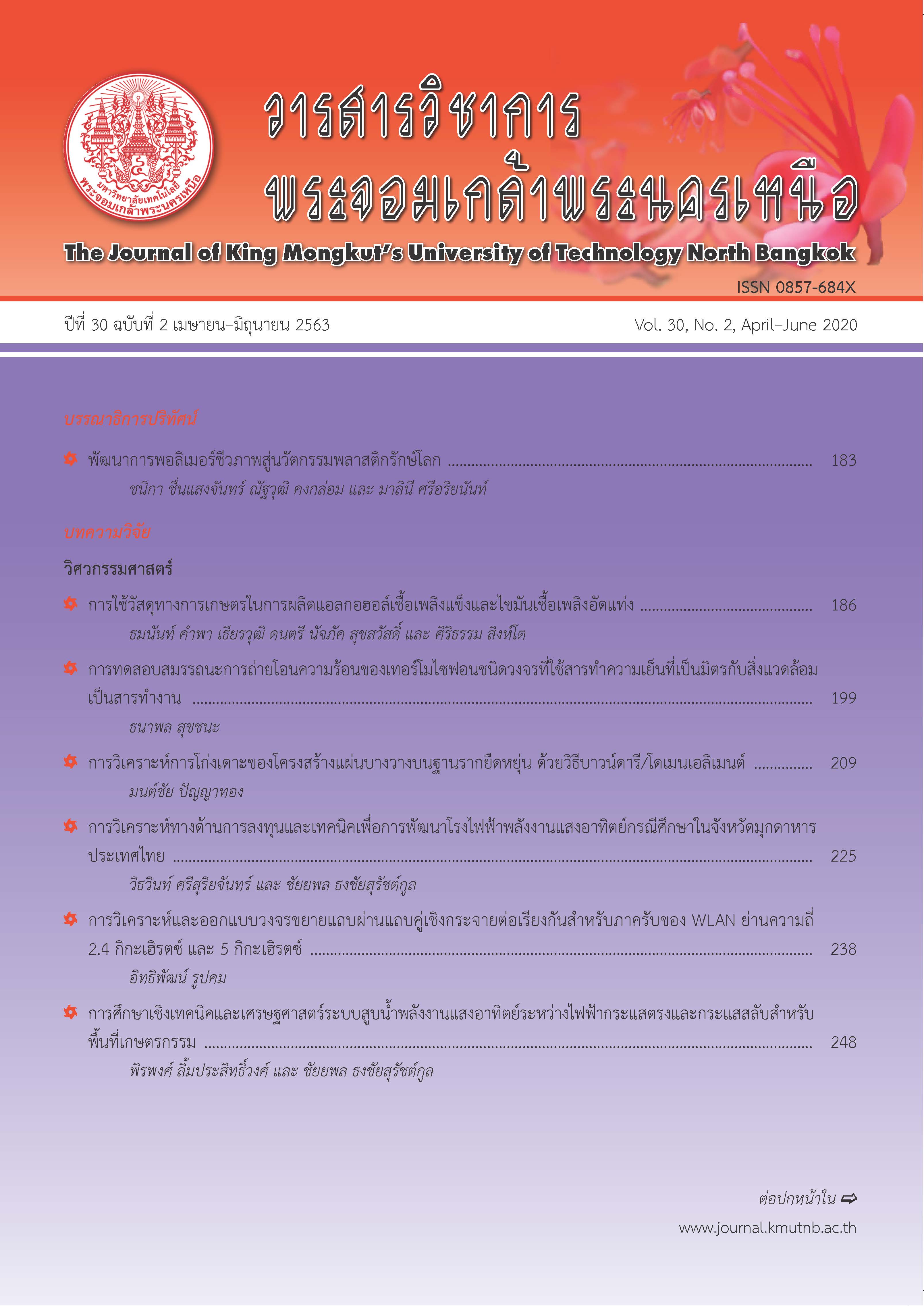The Development Model of the Management’s Potential in Construction Service Industry for Thailand 4.0
Main Article Content
Abstract
The purposes of this research were to create the development model and develop the manual for the development model of the management’s potential in construction service industry for Thailand 4.0. The selected methodologies of this research were mixing qualitative and quantitative methods. The qualitative researches were conducted with two representative groups: 1) In-depth interviews with 14 professional respondents through purposive sampling technique and 2) Focus group discussion with 15 experts to assess content consistency and evaluate this development model and manual. The quantitative research was conducted by the questionnaire-based survey with 438 respondents, comprising senior executives, project managers, and project engineers working in construction sites located in the Bangkok Metropolitan and suburb area. The instruments used in this study were in-depth interviews and questionnaires. The statistics including frequencies, percentages, means, standard deviations, pearson’s product moment correlation coefficients, and stepwise multiple regression analysis. The results of the development model disclose 3 constituents: Knowledge, consisting of 7 subcomponents; Skills encompassing 4 subcomponents; and Attributes comprising 4 subcomponents. The manual consists of guidelines based on each subcomponent and key success indicators. The results of the professional respondents’ evaluation showed that this development model were appropriate at the highest level (X = 4.87); that the model and can be applied to practice at the highest level (X = 4.89), and respondents agree that this manual were appropriate at the highest level (X = 4.87).
Article Details
The articles published are the opinion of the author only. The author is responsible for any legal consequences. That may arise from that article.
References
[2] I. Ibrahim and N. Hasnan, “Development and application of competency model in manufacturing operations: An overview,” in Proceedings ICTOM 04, 2017, pp. 141–150.
[3] Department of Business Development, List of Contractor Companies and Legal Entities in Thailand. Department of Business Development, Bangkok, Thailand, 2019 (in Thai).
[4] T. Silpjaru, Statistical Research and Analysis with SPSS, 7th ed. Bangkok: V. Inter Print Company Limited, 2007 (in Thai).
[5] T. Klangchai, “A model for knowledge management on operation cycle for construction organization,” Engineering Journal of Siam University, vol. 22, pp. 1–9, 2011 (in Thai).
[6] A. Panyayuttakarn. (2016). The path to becoming a professional project manager. Knowledger Co., Ltd. Bangkok, Thailand [Online] Available: http://www.knowledgertraining.com/index.php?tpid=0022 (in Thai).
[7] J. K. Pinto and D. P. Slevin, “Critical factors in successful project implementation,” IEEE Transactions on Engineering Management, vol. EM-34, no. 1, pp. 22–27, 1987.
[8] R. Srithong, Human Behavior and Self Development: Principle of Life Development, Bangkok: Third Wave Education Company Limited, 1999 (in Thai).
[9] S. W. Zoglio. (2001, August). 7 Keys to Building Great Work Teams. AgileConnection. Jacksonville, USA [Online] Available: https://www.agileconnection.com/article/7-keys-building-greatwork-teams
[10] P. C. Dinsmore, “Winning in business with enterprise project management,” presented at the Regional African Project Management of Project Management Institute South Africa (PMISA), South Africa, Nov. 3–5, 1999.
[11] P. Preeyakorn, Project Management: Critical Success Factors in Effective Project Implementation, 17th ed., Bangkok: Sema Tham, 2016 (in Thai).
[12] A. Sawatnopparat, “A study of knowledge management in construction contractor organizations,” M.S. thesis, Department of Civil Engineering, Faculty of Engineering, King Mongkut’s University of Technology Thonburi, 2006 (in Thai).
[13] A. Gray. (2016, January). The 10 skills you need to thrive in the Fourth Industrial Revolution. World Economic Forum. [Online]. Available: https://www.weforum.org/agenda/2016/01/the-10-skills-you-need-to-thrive-in-the-fourthindustrial-revolution/

